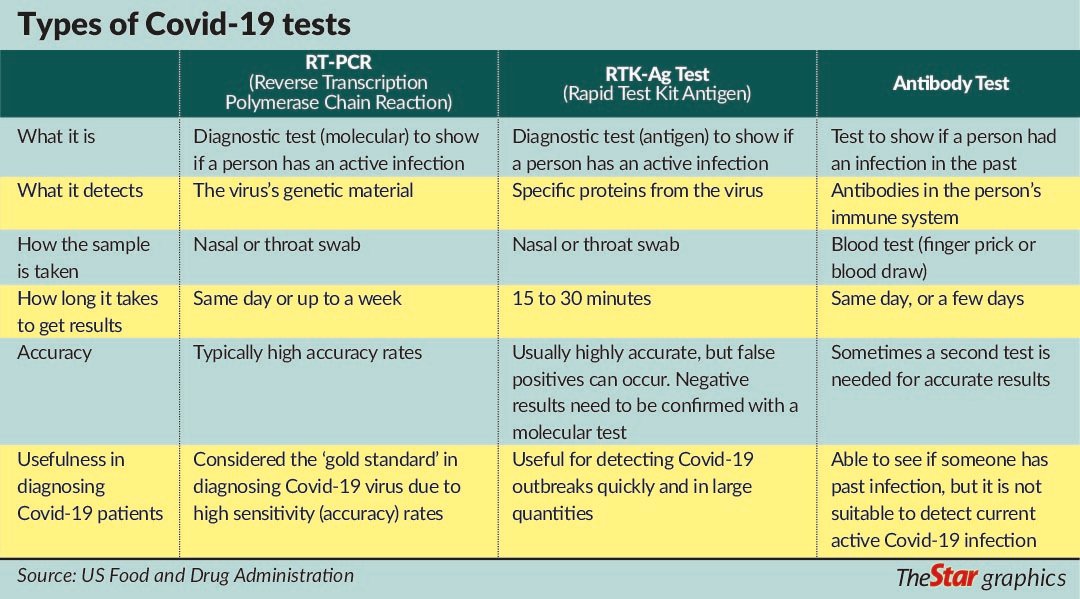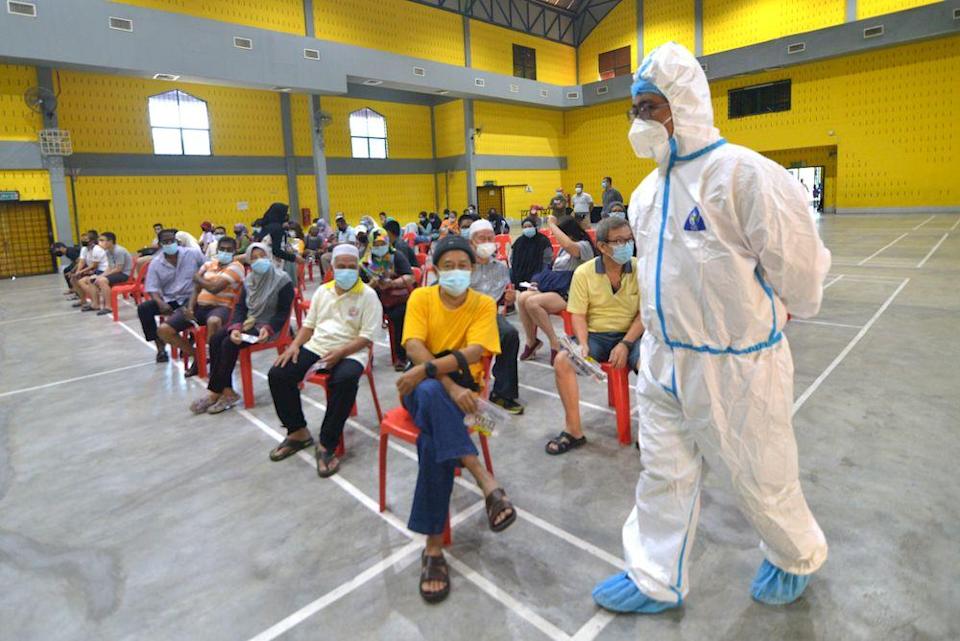The health minister advised people who believed that they had been overcharged for Covid-19 tests by laboratories and hospitals to lodge complaints with the Crisis Preparedness and Response Centre (CPRC). “The price of Covid-19 tests has been capped to ensure that it remains reasonable while the battle against the pandemic rages on,” said Baba. Labs and testing centres charging more than the set prices must itemise what the additional charges are for. The capped prices under the Emergency Ordinance are:
RT-PCR tests: RM150 (Peninsula), RM 200 (East Malaysia)RTK-Antigen tests: RM60 (Peninsula), RM80 (EM)RTK-Antibody tests: RM50 (Peninsula), RM70 (EM)
The Reverse Transcription Polymerase Chain Reaction or RT-PCR test, for those who don’t want to bite their tongue, is the gold standard of Covid-19 testing, which involves a nasal swab and takes anywhere between a day to a week to get the results. While the most expensive, it is this method that provides the highest accuracy. The cheaper rapid antigen test works almost as well but could sometimes result in false positives or negatives. However, the test only takes about 15 minutes to get results, making it suitable for testing large groups of people. When the Selangor government embarked on a state-wide mass screening, it used RTK-Antigen tests for all 56 state constituencies. Those who were suspected to be positive would be sent for an RT-PCR test so as to reduce false-positive cases.
Meanwhile, antibody tests aren’t suitable for testing as they only detect the presence of antibodies in the body. This determines if a person has been infected by the virus in the past, but gives no definite result on whether they are actively infected. As a comparison, the price caps for Indonesia are Rp 900,000 (~RM260) for RT-PCR and Rp 150,000 (~RM43) for rapid tests. On the other hand, Singapore has a price limit of S$200 for PCR tests. Looking at our neighbours, our price ceiling is quite favourable. (Sources: The Star, Malay Mail, Jakarta Post[1][2], SingSaver // Image: BERNAMA)

